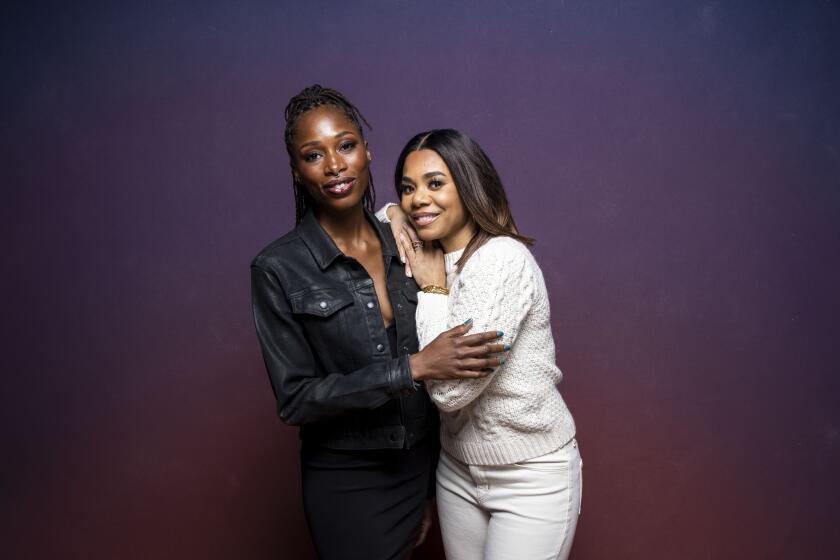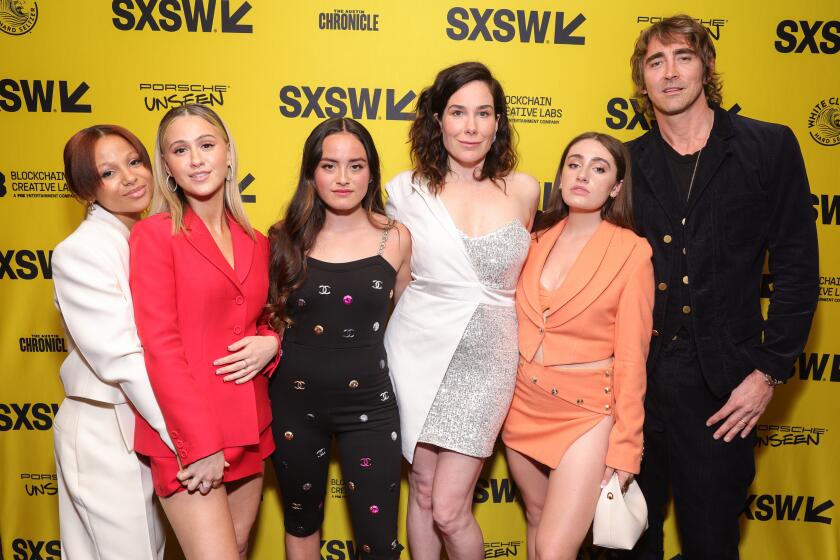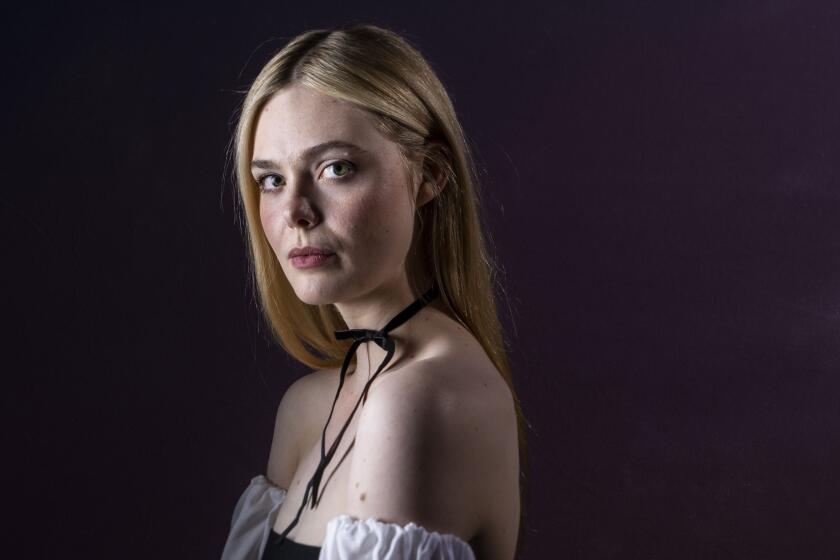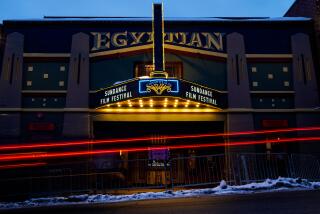This year, you can go to Sundance (from home). Here’s how
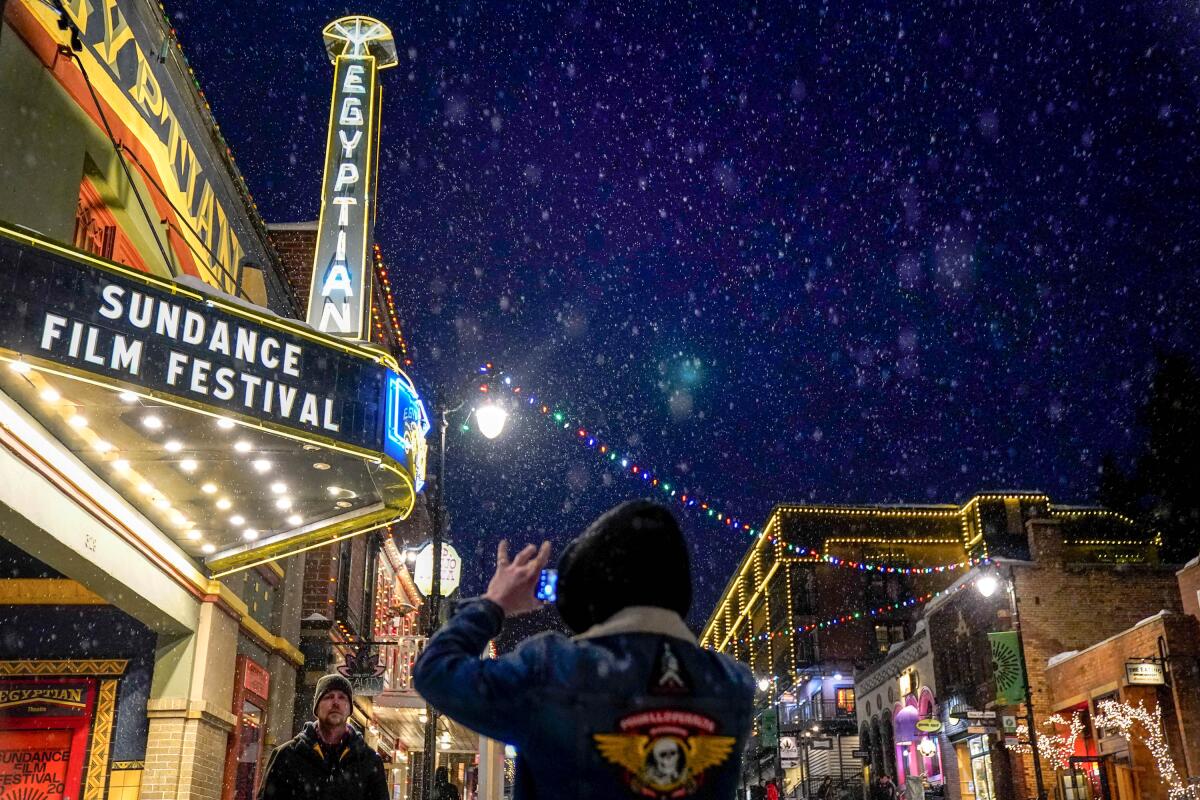
- Share via
In a normal year, the Sundance Film Festival is centered on the remote ski town of Park City, Utah. This obviously is not a normal year.
Sundance has shifted to a largely virtual program for 2021, with limited in-person events at satellite venues around the country. (Planned in-person drive-in screenings in Los Angeles have been canceled due to the continued high volume of local COVID-19 numbers.) And that means audiences can access the festival, which runs Jan. 28-Feb. 3, from anywhere.
Potential audiences can buy a full festival pass, a single-day pass or tickets to individual screenings. Festival passes and day passes are available until Jan 22. Single tickets will remain available until Feb 2. An awards winners pass will allow access to the festival’s awards winners on Feb 3.
While some of the festival’s starrier titles, such as the Ahmir “Questlove” Thompson’s feature directorial debut documentary, “Summer of Soul (… Or, When the Revolution Could Not Be Televised),” and “Passing,” the directing debut of actress Rebecca Hall starring Tessa Thompson and Ruth Negga, are already sold out, there are currently still plenty of tickets available for other titles.
Even if the online ticketing system says ‘sold out’ there may still be ways to see some of the hottest titles or change course to an unexpected surprise. Here’s how.
In hopes of fostering the same kind of excitement around a film’s first screening — leading to the indefinable, uncategorizable, know-it-when-you-feel-it Sundance buzz — there will be live Q&As after each film’s premiere showing, and the movies will have a limited streaming window.
Those premiere screenings will be in a three-hour window with a scheduled screening, interactive waiting room with live chat and special content, plus the live post-screening Q&A with filmmakers. Subsequent on demand screenings will allow for greater flexibility, with ticket-holders able to choose their own viewing time within the expanded screening window and access to pre-recorded Q&As.
This week the festival also announced the lineup for its series of free talks and events. There will be special events for both opening day and a festival-closing awards ceremony, as well as a series of conversations between artists, including one with “Judas and the Black Messiah” director Shaka King and Thompson and another with actresses Sonia Manzano and Rita Moreno.
Other talks include “Barbed Wire Kisses Redux,” a program on LGBTQ+ cinema, moderated by author B. Ruby Rich and including filmmakers Gregg Araki, Lisa Cholodenko, Cheryl Dunye, Andrew Ahn, Silas Howard, Rose Troche and Isaac Julien and a conversation between festival director Tabitha Jackson and filmmaker Raoul Peck, dubbed “The Past in the Present: A Personal Journey Through Race, History and Filmmaking.”
While passes and tickets are available to U.S. audiences only, the festival’s special Explorer Pass, which allows for access to the New Frontier, Indie Series and Shorts sections, is available globally. The talks and events hosted at the online festival village will be free and available globally.
More information is available at the festival’s website.
More to Read
Only good movies
Get the Indie Focus newsletter, Mark Olsen's weekly guide to the world of cinema.
You may occasionally receive promotional content from the Los Angeles Times.
